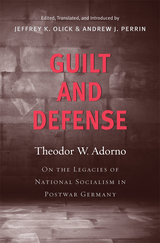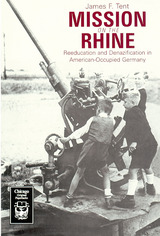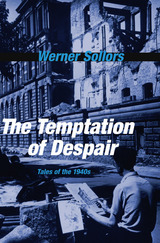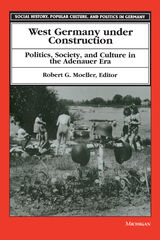
In his study of Brandenburg, Germany, Timothy Vogt directly challenges both the "antifascist" paradigm employed by East German historians and the "sovietization" interpretive model that has dominated western studies. He argues that Soviet denazification was neither an effective purge of society nor part of a methodical "sovietization" of the eastern zone. Instead, in a detailed study, denazification is pictured as a failure, which fell short of its goals and was eventually abandoned by the frustrated Soviet and German leadership.The case example of Brandenburg is an effective means of putting "flesh and blood" into the study and giving the reader insight into both broader developments and the human actors who propelled events. The result is an analysis that is based not simply on policymakers and their policies, but rather on how policy was continuously reformulated in response to developments on the local level.
The study encompasses significant aspects of contemporary European history: everyday life in Nazi Germany, Germany's postwar coming to terms with its Nazi past, the Cold War division of Germany, postwar Soviet policy, and the construction of a one-party communist system in Eastern Europe.


In the first work to examine both nazification and denazification of a major German university, Steven Remy offers a sobering account of the German academic community from 1933 to 1957. Deeply researched in university archives, newly opened denazification records, occupation reports, and contemporary publications, The Heidelberg Myth starkly details how extensively the university's professors were engaged with National Socialism and how effectively they frustrated postwar efforts to ascertain the truth.
Many scholars directly justified or implemented Nazi policies, forming a crucial element in the social consensus supporting Hitler and willingly embracing the Nazis' "German spirit," a concept encompassing aggressive nationalism, anti-Semitism, and the rejection of objectivity in scholarship. In elaborate postwar self-defense narratives, they portrayed themselves as unpolitical and uncorrupted by Nazism. This "Heidelberg myth" provided justification for widespread resistance to denazification and the restoration of compromised scholars to their positions, and set the remarkably long-lasting consensus that German academic culture had remained untainted by Nazi ideology.
The Heidelberg Myth is a valuable contribution to German social, intellectual, and political history, as well as to works on collective memory in societies emerging from dictatorship.

For this meticulously researched study, James F. Tent has drawn on a wealth of recently declassified documents and on numerous personal interviews with veterans of the Occupation. He brings to life not only the dilemmas American officials faced in balancing the need for a political purge against the need to rehabilitate a disrupted society but also the paradoxes involved in a democracy's attempt to impose its ideals on another people. His book chronicles the dedicated work of many Americans; it also illuminates America's Occupation experience as a whole.

In Germany, the years immediately following World War II call forward images of obliterated cities, hungry refugees, and ghostly monuments to Nazi crimes. The temptation of despair was hard to resist, and to contemporary observers the road toward democracy in the Western zones of occupation seemed rather uncertain. Drawing on a vast array of American, German, and other sources—diaries, photographs, newspaper articles, government reports, essays, works of fiction, and film—Werner Sollors makes visceral the experiences of defeat and liberation, homelessness and repatriation, concentration camps and denazification.
These tales reveal writers, visual artists, and filmmakers as well as common people struggling to express the sheer magnitude of the human catastrophe they witnessed. Some relied on traditional images of suffering and death, on Biblical scenes of the Flood and the Apocalypse. Others shaped the mangled, nightmarish landscape through abstract or surreal forms of art. Still others turned to irony and black humor to cope with the incongruities around them. Questions about guilt and complicity in a totalitarian country were raised by awareness of the Holocaust, making “After Dachau” a new epoch in Western history.
The Temptation of Despair is a book about coming to terms with the mid-1940s, the contradictory emotions of a defeated people—sorrow and anger, guilt and pride, despondency and resilience—as well as the ambiguities and paradoxes of Allied victory and occupation.

Moving beyond accounts of high politics and international relations, the essays brought together here focus on the intersections between the politics of daily life and the politics of the nation-state. Building on the approaches of women's history, social history, and cultural studies, they emphasize that the process of defining West Germany in the 1950s took place not only in the geopolitical arena of the Cold War but also in dance halls and at the movies, in worker-training programs, and in patterns of consumption.
West Germany under Construction not only expands our understanding of the early formation of West German society, it also outlines ways to continue the excavation of that past. It will be mandatory reading for students and scholars alike.
Robert G. Moeller is Professor of History, University of California, Irvine.
READERS
Browse our collection.
PUBLISHERS
See BiblioVault's publisher services.
STUDENT SERVICES
Files for college accessibility offices.
UChicago Accessibility Resources
home | accessibility | search | about | contact us
BiblioVault ® 2001 - 2024
The University of Chicago Press









